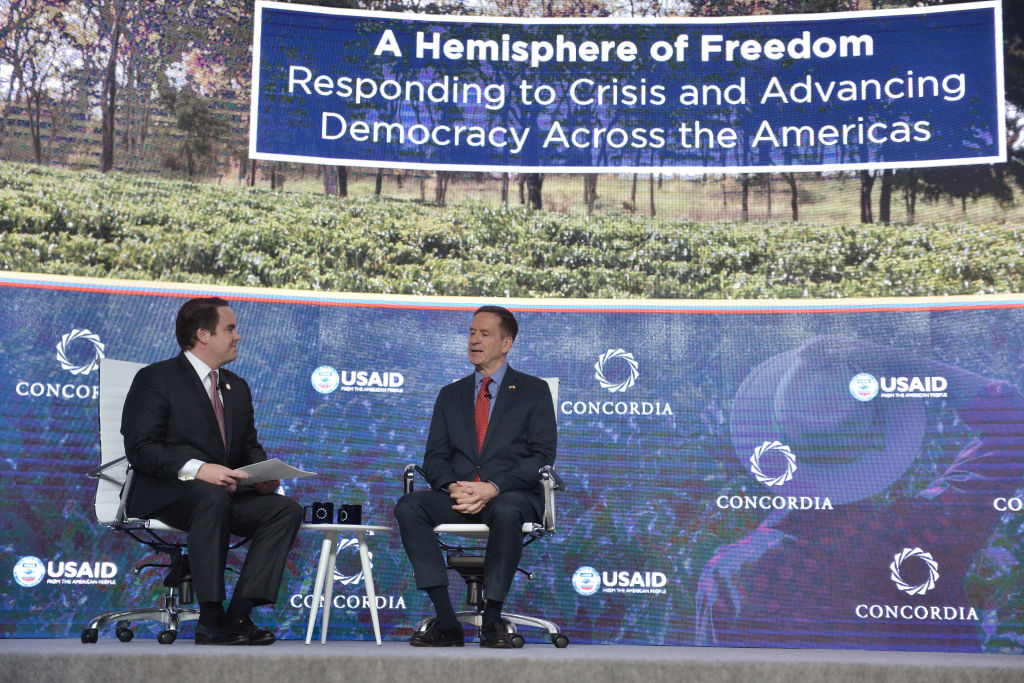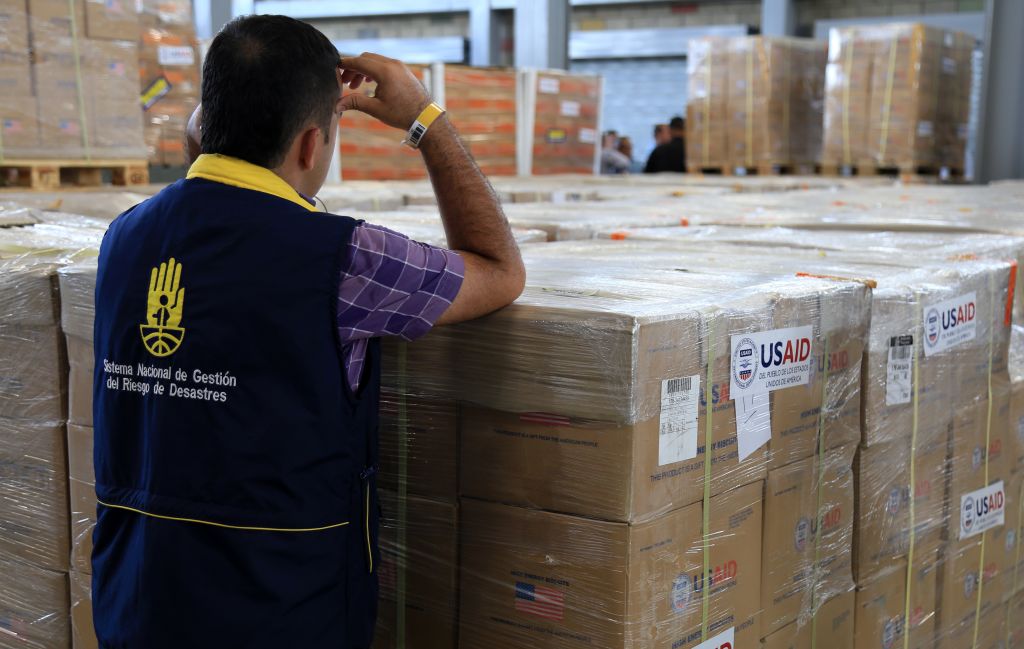No, the US Agency for International Development didn’t fund a transgender opera in Colombia

White House Press Secretary Karoline Leavitt falsely claimed that USAID had spent $47,000 funding a trans opera in Colombia (Getty)
Google searches for “USAID spending list” have spiked globally in the wake of White House claims that the under-siege international development agency “wasted taxpayers’ money” funding “woke” initiatives.
Speaking outside the White House on Monday (3 February), Leavitt held up a single sheet of paper that she claimed outlined USAID’s expenditure on DEI (diversity, equity and inclusion) projects.
She listed: “$1.5 million to advance DEI in Serbia’s workplaces, $70,000 for a production of a DEI musical in Ireland, $47,000 for a transgender opera in Colombia, $32,000 for a transgender comic book in Peru.”
Leavitt added: ‘I don’t know about you, but as an American taxpayer I don’t want my dollars going toward this crap.”
If it sounds unlikely that USAID, an international development agency focused primarily on providing vital food aid, extremism prevention projects and disaster relief to countries around the world would add “transgender operas” to its spending list – that is because it didn’t.

Leavitt was referring to a 2022 production of an opera called As One, a chamber opera by acclaimed American composer Laura Kaminsky, which focuses on the inner journey of Hannah, a transgender woman, and her process of personal discovery from her childhood in a small town.
Three performances of As One were put on in Bogota, Colombia in March and April 2022, thanks to a co-production between La Compañía Estable and the Universidad de los Andes.
The $47,000 figure quoted by Leavitt appears to be related to the fact that Universidad De Los Andes in Bogotá received $25,000 under a State Department program allocated for “expanding and strengthening the relationship between the people and government of the United States and citizens of the rest of the world.”
The remaining $22,000 for the production also wasn’t funded by the federal government, according to NOTUS, a Washington publication from the nonprofit, nonpartisan Allbritton Journalism Institute.
When asked about the lie mistake, deputy press secretary Anna Kelly told NOTUS it was immaterial.
“President Trump is delivering on his promise to cut wasteful spending across federal agencies. NOTUS is totally missing the point — taxpayers don’t want to fund transgender operas in Colombia,” Kelly said in a statement.

Donald Trump and Elon Musk’s recent attacks on USAID have been littered with false statements and misinformation. In a live-streamed social media talk on X Spaces on Monday (3 February), Elon Musk stated that the agency is “beyond repair, adding that President Trump agrees it should be shut down.
Musk’s claims on X followed the removal of two top security officials at the United States Agency for International Development, John Voorhees and his deputy, after they refused access to restricted, highly classified spaces to Elon Musk’s DOGE representatives over the weekend.
On Sunday night, Trump attacked the aid agency’s leadership saying they were a “bunch of radical lunatics.” Over the weekend, Musk took to X to describe the agency as “evil” and a “viper’s nest of radical-left Marxists who hate America.”
Musk also tweeted a baseless claim that USAID “funded bioweapon research, including COVID-19, that killed millions of people.”
Speaking about the “transgender opera” claim, a USAID official told Notus: “From Day One, this administration has demonstrated that they were more focused on blowing up an agency than actually understanding what it is and what it does.”
USAID’s actual 2022 Colombia spending list

The USAID website is currently down, making it extremely difficult to access historical information like annual reports or budget documents, however, using the Internet Archive’s Wayback Machine, which stores and preserves web pages, it’s possible to read the agency’s Colombia Assistance Overview report, which was filed in October 2022.
The report details how an ongoing economic and political crisis in neighbouring Venezuela led to an influx of around 2.5 million refugees seeking sanctuary in Colombia that year. At the same time, almost a million Colombians who had emigrated to Venezuela returned home, putting a huge strain on food supplies and local health services.
In response, USAID’s Bureau for Humanitarian Assistance prioritised the provision of emergency food assistance, including cash transfers for food, food vouchers redeemable in local markets, and hot meals. Not operas.
How did this story make you feel?

